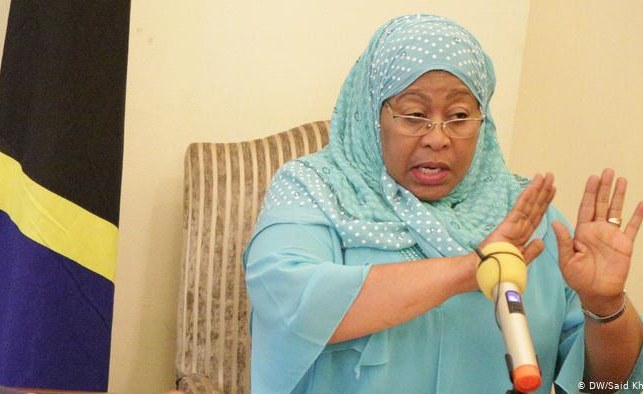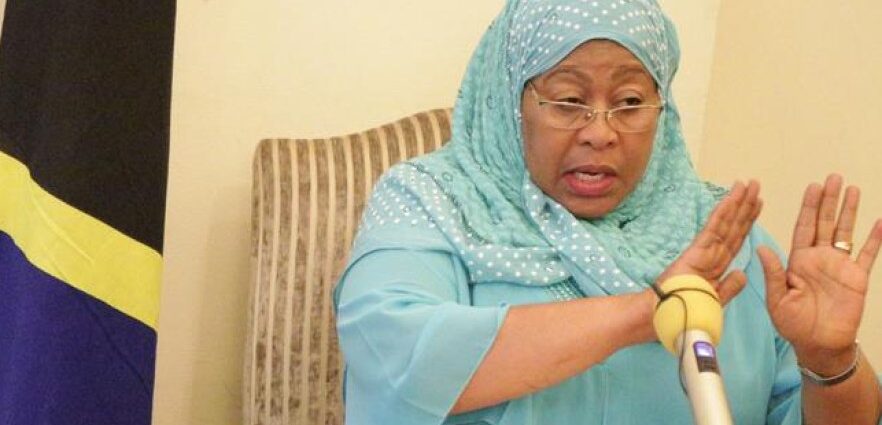
Dar es Salaam — The presidents of Tanzania and Kenya have agreed to fast-track construction of a natural gas pipeline designed to increased trade and lower energy costs for both countries.
The decision was reached Monday in bilateral talks in Dar es Salaam led by Tanzanian President Samia Hassan and Kenyan President William Ruto, during a two-day visit.
Last year, Hassan and Kenya’s then-president Uhuru Kenyatta signed an agreement in Nairobi to start working on the gas pipeline project, but actual construction has yet to commence.
The two countries have generally maintained positive ties in politics and trade, but have occasional trade spats.
Tanzania imposed a 25% import duty on Kenyan confections in 2020, saying the country used zero-rated industrial sugar imports to produce them. In another dispute, Kenya banned Tanzanian tour vans from accessing the Maasai Mara National Reserve, arguing that Tanzania had banned Kenyan operators from accessing the Serengeti National Park.
These differences were resolved when Tanzania’s Hassan visited Nairobi last year to meet with Kenyatta.
There were 68 trade barriers identified between Tanzania and Kenya at the time, Hassan said, and 54 of those non-tariff barriers were resolved. Ministers in the trade and investment sector have been tasked with working to resolve the remaining 14 barriers, Hassan said.
The projected natural gas pipeline would run for about 600 kilometers between Dar es Salaam and Mombasa. There is no projected completion date.
Source: allafrica.com
Share this news
This Years Most Read News Stories

CCM ready to task state organs on Zanzibar Airport deal
Ruling party Chama Cha Mapinduzi-Zanzibar has said it is ready to task state organs to investigate some of the claims against its government that have been raised by opposition politicians on the Abeid Amani Karume International Airport (AAKIA).Continue Reading

Tanzania Confirms Second Marburg Outbreak After WHO Chief Visit
Dar es Salaam — Tanzania’s President Samia Suluhu Hassan has declared an outbreak of Marburg virus, confirming a single case in the northwestern region of Kagera after a meeting with WHO director-general Tedros Adhanom Ghebreyesus.
The confirmation follows days of speculation about a possible outbreak in the region, after the WHO reported a number of deaths suspected to be linked to the highly infectious disease.
While Tanzania’s Ministry of Health declared last week that all suspected cases had tested negative for Marburg, the WHO called for additional testing at international reference laboratories.
“We never know when an outbreak might occur in a neighbouring nation. So we ensure infection prevention control assessments at every point of care as routine as a morning greeting at our workplaces.”Amelia Clemence, public health researcher
Subsequent laboratory tests conducted at Kagera’s Kabaile Mobile Laboratory and confirmed in Dar es Salaam identified one positive case, while 25 other suspected cases tested negative, the president told a press conference in Dodoma, in the east of the country today (Monday).
“The epicentre has now shifted to Biharamulo district of Kagera,” she told the press conference, distinguishing this outbreak from the previous one centred in Bukoba district.
Tedros said the WHO would release US$3 million from its emergencies contingency fund to support efforts to contain the outbreak.
Health authorities stepped up surveillance and deployed emergency response teams after the WHO raised the alarm about nine suspected cases in the region, including eight deaths.
The suspected cases displayed symptoms consistent with Marburg infection, including headache, high fever, diarrhoea, and haemorrhagic complications, according to the WHO’s alert to member countries on 14 January. The organisation noted a case fatality rate of 89 per cent among the suspected cases.
“We appreciate the swift attention accorded by the WHO,” Hassan said.
She said her administration immediately investigated the WHO’s alert.
“The government took several measures, including the investigation of suspected individuals and the deployment of emergency response teams,” she added.
Cross-border transmission
The emergence of this case in a region that experienced Tanzania’s first-ever Marburg outbreak in March 2023 has raised concerns about cross-border transmission, particularly following Rwanda’s recent outbreak that infected 66 people and killed 15 before being declared over in December 2024.
The situation is particularly critical given Kagera’s position as a transport hub connecting four East African nations.
Amelia Clemence, a public health researcher working in the region, says constant vigilance is required.
“We never know when an outbreak might occur in a neighbouring nation. So we ensure infection prevention control assessments at every point of care as routine as a morning greeting at our workplaces.”
The Kagera region’s ecosystem, home to fruit bats that serve as natural reservoirs for the Marburg virus, adds another layer of complexity to disease surveillance efforts.
The virus, closely related to Ebola, spreads through contact with bodily fluids and can cause severe haemorrhagic fever.
Transparency urged
Elizabeth Sanga, shadow minister of health for Tanzania’s ACT Wazalendo opposition party, says greater transparency would help guide public health measures.

Sign up for free AllAfrica Newsletters
Get the latest in African news delivered straight to your inbox
“This could have helped to guide those who are traveling to the affected region to be more vigilant and prevent the risk of further spread,” she said.
WHO regional director for Africa Matshidiso Moeti says early notification of investigation outcomes is important.
“We stand ready to support the government in its efforts to investigate and ensure that measures are in place for an effective and rapid response,” she said, noting that existing national capacities built from previous health emergencies could be quickly mobilised.
The situation coincides with leadership changes in Tanzania’s Ministry of Health, with both the chief medical officer and permanent secretary being replaced.
This piece was produced by SciDev.Net’s Sub-Saharan Africa English desk.
Source: allafrica.com

Zanzibar, Tanzania: Inflation hits five-year high
With Covid-19 and the war in Ukraine being blamed after inflation in Tanzania and Zanzibar rose to 4.5 this year and is climbing – the highest rate since November 2017Continue Reading











